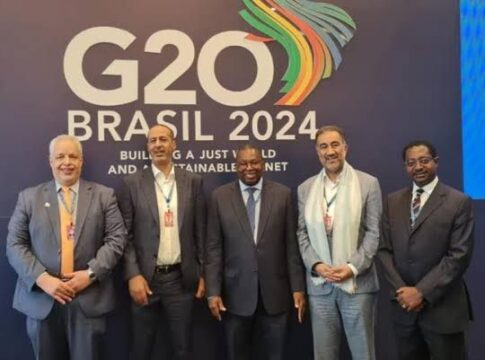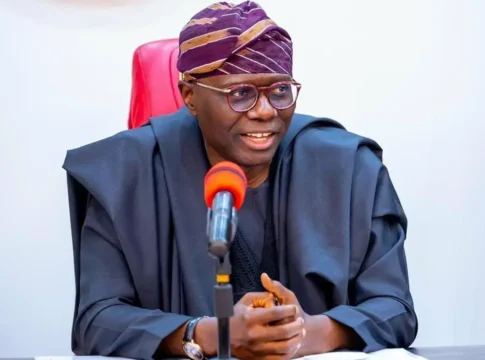The African Union (AU) celebrated significant progress at the G20 Summit in Rio de Janeiro, with outcomes aligning closely with its core priorities. Brazil’s focus on a just world and sustainable development resonated deeply with Africa’s agenda, sparking optimism about global partnerships for the continent’s growth.
“This summit marks a pivotal moment for Africa,” said AU Chairperson Mohamed Ould Ghazouani. “One in five Africans faces malnutrition, and over 300 million could be chronically undernourished by 2030. The commitments here are steps toward addressing these challenges.” Ghazouani praised Brazil for launching the Global Alliance against Hunger and Poverty, a crucial initiative that highlights Africa’s ongoing struggle with food insecurity.
The 86-point G20 Rio Declaration reflected many of the AU’s six priorities, including reforming global financial systems, boosting trade, and addressing climate change. While the declaration emphasized the UN’s Agenda 2030 over the AU’s Agenda 2063, it reaffirmed commitments to sustainable development. Notably, it included pledges to secure low-cost financing for developing countries and voluntary principles for just energy transitions.
African Voices Gain Strength at G20
The African Union’s strategy of relentless pre-summit advocacy bore fruit, with several of its demands addressed in the G20’s final declaration. AU Sherpa Albert Muchanga, alongside South Africa, had pushed for inclusive growth, fair financial systems, and climate action in line with the United Nations Sustainable Development Goals.
The G20 leaders agreed to enhance Africa’s representation in global financial institutions, including creating a 25th seat on the IMF Executive Board for sub-Saharan Africa. They also emphasized improving developing nations’ roles in multilateral banks and addressing debt vulnerabilities. However, debt and peace—though vital—were not AU-highlighted priorities, leaving some areas underexplored.
Hunger and Poverty Dominate African Agenda
Furthermore, the summit highlighted the stark reality of hunger and poverty in Africa. The Global Alliance against Hunger and Poverty noted that 733 million people globally faced hunger in 2023, with Africa disproportionately affected.
“We cannot separate hunger from economic imbalances, rapid population growth, and climate change,” said Ghazouani. He outlined the AU’s agricultural development strategy for 2026-35 and urged support for the Kampala Declaration, set for adoption in 2025.
Despite its triumphs, the AU’s call for permanent representation on the UN Security Council remains unfulfilled. The declaration broadly endorsed the need for reform but stopped short of explicit guarantees.
Building Momentum Ahead of South Africa’s Presidency
The AU’s inaugural G20 participation benefited from Brazil’s development-focused leadership and collaboration with South Africa and India. The troika’s like-minded approach ensured the summit addressed Africa’s needs.
Looking ahead, South Africa’s G20 presidency offers another opportunity to solidify gains. However, analysts warn of potential challenges under the United States’ leadership in 2026.
“The real test will come when ideological priorities shift,” said Sanusha Naidu of the Institute for Global Dialogue.
Still, the AU has cause for optimism. The G20’s shift from consensus-based to “sufficient consensus” decision-making, pioneered at this summit, allowed progress despite dissent from Argentina’s right-wing government.
Challenges Remain, But Hope Prevails
While the G20 addressed many of Africa’s concerns, some experts called for greater attention to peace and stability. “You cannot achieve sustainable development without peace,” Naidu emphasized. She urged South Africa to prioritize this during its presidency.
Despite challenges, the AU’s effective diplomacy at Rio demonstrates its growing influence. The declaration’s commitments to tackling global inequities signal hope for a stronger, more inclusive future for Africa.




